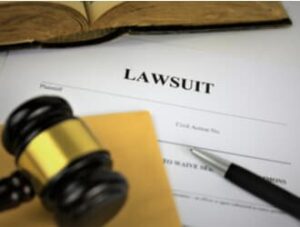
If you were injured due to someone else’s actions, you have the right to seek fair compensation in court. By filing a personal injury claim, you may be compensated for medical bills, lost wages, damaged property, and more. However, Colorado law limits the time you have to file your case. This deadline is known as the statute of limitations and is strictly enforced.
In other words, time is of the essence, and you should not wait to speak with a personal injury attorney as soon as possible. At the Wilhite Law Firm, our experienced personal injury lawyers are ready to hear your case. Call today for a free consultation.
What Is a Personal Injury Lawsuit?
Personal injury lawsuits allow you to seek fair compensation for the physical, emotional, and financial harm you have suffered because of someone else’s actions. There are many kinds of personal injury cases, ranging widely from slip-and-falls to major auto accidents and medical malpractice to product liability. Though the law governing each case may vary, the overarching goal is to discourage behavior that may endanger other people’s lives and well-being.
Personal injury lawsuits are always brought as civil cases by private individuals. This means that the burden of proof is much lower than in a criminal case brought by the state. The injured party need only prove the at-fault party’s liability by a preponderance of the evidence. In plain language, this means you must show that it is “more likely than not” that the at-fault party’s actions caused your accident and injuries.
How Long Do I Have to File a Personal Injury Lawsuit in Colorado?
Most personal injury cases are resolved outside of court by negotiating a settlement with the at-fault party or, more commonly, their insurer. However, if a reasonable settlement cannot be negotiated, it may be necessary to take the at-fault party to court. You must do so before the deadline set by the governing statute of limitations.
Colorado’s statute of limitations for most personal injury lawsuits sets the deadline at two years from the date of the accident. This rule applies to almost all cases seeking compensation for injury caused by another person.
However, Colorado sets a more generous statute of limitations for auto accidents, one of the most recurring case types. If you were injured in an auto accident, Colorado’s statute of limitations gives you three years from the date of the accident to file your case.
What Happens If You Miss the Statute of Limitations Deadline?
Again, Colorado law requires that most personal injury lawsuits be filed within two to three years after the date of the accident. Subject to very few exceptions, your case will be dismissed in court if you miss the deadline. This will likely have a devastating effect on your case.
In particular, if your case cannot be heard in court because you missed the filing deadline, you will lose most of your leverage when negotiating with an at-fault party and their insurers. By eliminating the possibility of taking the case to court, you may ultimately be forced to accept a minimum offer allowed under the governing insurance policy.
Therefore, even if your case is eligible for one of the exceptions discussed below, it is best to have it reviewed by an attorney as soon as possible. Call the Wilhite Law Firm today for a free case evaluation.
Are There Exceptions to the Statute of Limitations Rule?
 In most cases, the statute of limitations begins its countdown on the day you are injured. Once time runs out, there are very few exceptions to prevent your case from being permanently barred. That said, exceptions do exist and include the following:
In most cases, the statute of limitations begins its countdown on the day you are injured. Once time runs out, there are very few exceptions to prevent your case from being permanently barred. That said, exceptions do exist and include the following:
- Minors and Disabled Individuals – Minors and individuals with a disability receive extra time to file personal injury claims seeking compensation. In particular, the statute of limitations only begins to run against minors once they legally become adults at 18. It may also start to run against both minors and disabled individuals once a legal representative is appointed on their behalf.
- The Discovery Rule – Certain injuries do not appear until after the accident. In these cases, the statute of limitations may be extended to account for the late appearance. It may also be extended when a victim did not initially know that the at-fault party’s actions caused their injury. This exception is sometimes known as the “Discovery Rule.”
What Compensation Is Available from a Personal Injury Lawsuit?
The purpose of a personal injury lawsuit is to make the injured party “whole,” meaning that they should be compensated for their injuries so that they are restored to their original condition to the extent possible. The compensation varies in amount and kind depending on the circumstances of each case. It may seek to reimburse injured parties for:
- Medical expenses
- Lost wages
- Lost earning capacity
- Property damage
- Emotional distress
- Pain and suffering
How Can a Personal Injury Attorney Help You?
Two to three years may seem like a long time. That said, personal injury cases can be complex and time-consuming. The sooner you bring your case to an attorney, the better. You want to make sure your attorney has plenty of time to:
- Investigate the accident
- Collect evidence before it is lost or altered
- Investigate the relevant law
- Send demand letters to at-fault parties
- Negotiate a settlement
- File a lawsuit before the statute of limitations expires
- Litigate your case in court
Contact an Experienced Colorado Personal Injury Attorney for Help
If you were injured in an accident in Colorado, do not wait to speak with an attorney. The longer you wait, the closer you get to the filing deadline set by the statute of limitations and the less time there is to work on your case.
Contact the Wilhite Law Firm for a free consultation with an experienced personal injury attorney today. For 35 years, we have helped those injured in our community seek the compensation and justice they deserve. Let us put that experience to work for you.






















